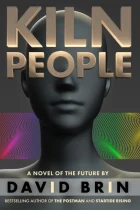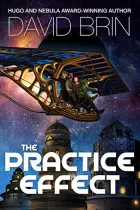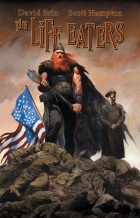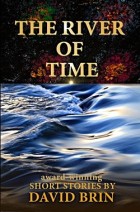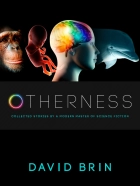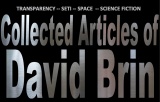A lot of efforts have been made to appraise the Bible in terms of science and vice versa. For example, I’ve had fun showing (to a conference of transhumanists, no less!) that the book of Genesis clearly states we were meant to be scientists and co-creators and that “nothing is beyond us.”
 Indeed, it can be illuminating to plumb the Bible — one of the keystone books of western civilization. Moreover, it gives you the ability to stun, surprise and gain a back-brain door into the minds of some of your deep-steeped neighbors. And so, in light of the recent Russell Crowe film, let’s pause and sample the story of Noah.
Indeed, it can be illuminating to plumb the Bible — one of the keystone books of western civilization. Moreover, it gives you the ability to stun, surprise and gain a back-brain door into the minds of some of your deep-steeped neighbors. And so, in light of the recent Russell Crowe film, let’s pause and sample the story of Noah.
Now of course, it is somewhat like shooting fish in the proverbial barrel. Past scholars, uncharitable toward literalist believers in “biblical inerrancy,” have calculated the needed size of the Ark, for example. Were even just all known mammal species shoved aboard, shoulder to shoulder — you’d need a hundred modern aircraft carriers.
In fact, this argument has had results! Creationist “scientist” Ken Ham conceded — in his recent debate with Bill Nye — that evolution (yes “evolution”!) must have radiated all the species we now see, from a seed population that rode upon the Ark! I cannot believe this major concession got so little play in the media or among devotees of either religion or science. It is a real shift in ground.
 So, all right, following Ham’s clever dip-n-dodge… Noah only carried two of every GENUS and not species. I’m not sure even that will suffice… but however you may groan over this bit of back-pedaling, you also have to be impressed with the agile footwork! Okay, so evolution is real. But it only happened after the flood. Jumping Jehosephat.
So, all right, following Ham’s clever dip-n-dodge… Noah only carried two of every GENUS and not species. I’m not sure even that will suffice… but however you may groan over this bit of back-pedaling, you also have to be impressed with the agile footwork! Okay, so evolution is real. But it only happened after the flood. Jumping Jehosephat.
Take a look at this article: Creationists Need Faster Evolution than Evolution on Skeptic Ink, who claims that creationists are “using evolutionary theory to support Noah’s Ark. Sad.”
(For you science-y types, here’s the capsule from Skeptic Ink: “There are 2,798 HLA-B alleles in the human population. If these originated from the 8 individuals on the ark (assuming all were heterozygous), the mutation rate for the gene must have been one every 2 years (from the day Noah stepped off the Ark until the present). But this mutation rate for the HLA gene wasn’t matched by mutation rates for other genes. We don’t have 2000 alleles for eye color or blood type or other genes in the human body.” In other words, no possible set pif genetic mutation rates can match this story against what we now see going on, in the cells and chromosomes of living creatures today.)
 Okay. Then something else occurred to me. Let’s say the entire human population, including guiltless babies, were drowned in a fit of angry pique by a questionably-balanced deity who was not setting a very good parental example, that’s for sure. And let’s further posit that the wives of Noah’s three sons must replenish the Earth with humans. Less than ten generations later, you have cities and Babel-towers being built. What’s the math on that?
Okay. Then something else occurred to me. Let’s say the entire human population, including guiltless babies, were drowned in a fit of angry pique by a questionably-balanced deity who was not setting a very good parental example, that’s for sure. And let’s further posit that the wives of Noah’s three sons must replenish the Earth with humans. Less than ten generations later, you have cities and Babel-towers being built. What’s the math on that?
Well, if each woman is very very fertile — and extremely lucky — let’s generously figure ten surviving offspring. (Extremely generous, for that era, but let’s go with it.) Five of those ten are daughters who can make human beings. (For our purposes, only females matter.) If each generation can multiply the number of fecund females by five, then ten generations of continuously lucky folks, who breed like rabbits and lose almost no babies at all, will give you close to ten million people! Wow.
 Of course, that calculation is at the extreme high end. See this analysis, where other scholars suggest there were 900,000 people around to start building the Tower of Babel and perhaps as few as 36,000. In which case you get a completely different set of math quandaries…
Of course, that calculation is at the extreme high end. See this analysis, where other scholars suggest there were 900,000 people around to start building the Tower of Babel and perhaps as few as 36,000. In which case you get a completely different set of math quandaries…
…like how much physical volume of stone or rammed earth could be stacked upon a tower, in just the century alloted, by such a small population that also had to grow food and live “by the sweat of their brow”? By the time you get to 20,000 feet, the sheer amount of stuff… neglecting compressional and other engineering forces… could not have been hauled by 100x that population — equipped with trucks! No wonder Talmudic scholars decided (in the 7th century) that the word “tower” must have stood for some kind of machine or high technology that had been lost to time, one that enabled human wizards to fly tp heaven’s gateway. Okay, that’s kinda sci-fi cool, I admit, especially for the 7th Century! But a topic for another time. Let’s get back to Noah.
 One suggestion by the talmudists that’s very interesting is that the human species that was wiped out by the Flood was different than ours. That the flood-reset wasn’t just moral but genetic, with Noah’s family being fundamentally different than his water-doomed neighbors, not just morally but as a matter of speciation. (One sage suggested that people before that point “had no thumbs” until Noah’s new sub-species introduced that novelty. Can anyone find a reference?)
One suggestion by the talmudists that’s very interesting is that the human species that was wiped out by the Flood was different than ours. That the flood-reset wasn’t just moral but genetic, with Noah’s family being fundamentally different than his water-doomed neighbors, not just morally but as a matter of speciation. (One sage suggested that people before that point “had no thumbs” until Noah’s new sub-species introduced that novelty. Can anyone find a reference?)
Hmmm. well, the mind roams at this point, picturing a humanity 1.0 that might have been really unpleasant by nature… (what? worse than us?)… in which case, is the questionable morality of the Flood eased, at all?
Alas, that raises a counter question about the fallibility of a deity who had to revise His design. (Not a problem, by modern reckoning! All ambitious projects undergo revision. It is only a quandary – ironically – to the obsequiously devout, who insist on zero-fallibility, a completely unnecessary trait of a creator and, well, a hard piece of flattery to live up to!)
 Of course, all this calculating misses the point… that the literalist inerrancy folks are wrong, on a truly manic scale. Standing upon a tower of evidence, we know the ages of the Rocks of Ages. We know the universe is vastly greater, older and more beautiful than their cramped, cover-the-eyes-and-ears frenzy permits them to see. But even if you take the stories at face value, problems abound.
Of course, all this calculating misses the point… that the literalist inerrancy folks are wrong, on a truly manic scale. Standing upon a tower of evidence, we know the ages of the Rocks of Ages. We know the universe is vastly greater, older and more beautiful than their cramped, cover-the-eyes-and-ears frenzy permits them to see. But even if you take the stories at face value, problems abound.
For example, if the Babel dispersal happened around 1800 BCE (about the time of the Thera explosion of Santorini, a thought provoking coincidence!) then a seed population of maybe 100,000 would have had to bear successful babies at a prodigious rate… while walking very quickly… in order to spread to the corners of the globe and diversify into the countless tribes who we know to have dwelled in countless far-flung locales. Most of which we know to have been occupied already, long before 1800 BCE. Indeed, by that date, Egypt had already been operating for quite some time… and their language did not change as a result of any tower.
But it’s that successful birth rate that has me confused. At what point did the accelerated replenishment cut off, with the world’s women losing that reproductive lucky streak, tumbling into the long era of filth and pain and childbed-fever and still-births and miscarriages and infertility and death, death, death that we know to have been their lot, both from written records and from mummies and bones?
It must have been an abrupt transition — a terrifying and dismaying one… from a blithe expectation of long lives and ten healthy children, into a maelstrom of horror and bleeding and mourning. Yet no records or even stories tell of such a devastating shift. Nor do I know of any any theological musings to explain why the rebuild of population since the flood was so rapid, then abruptly limited by pain and death after death. Was this another punishment? If so, it seems nastier than any flood.
 One group inconvenienced by these points of math is the Mormon community. If (as calculated) there were about 340 years between the flood and Babel… and if the Babel crisis precipitated the barrel-migration of a Hebrew tribe (Jaredites) to America… then the building of populations in the Americas becomes almost impossible to contemplate, especially with no Ice Age Bering land bridge to make things seem plausible. But of course, the same quandaries afflict any other faith that insists on interpreting the legends of illiterate shepherds as physically precise accounts…
One group inconvenienced by these points of math is the Mormon community. If (as calculated) there were about 340 years between the flood and Babel… and if the Babel crisis precipitated the barrel-migration of a Hebrew tribe (Jaredites) to America… then the building of populations in the Americas becomes almost impossible to contemplate, especially with no Ice Age Bering land bridge to make things seem plausible. But of course, the same quandaries afflict any other faith that insists on interpreting the legends of illiterate shepherds as physically precise accounts…
…instead of allegories that still convey powerful lessons, to this day.
And so, that is where I will leave things. First, because there can be no resolution, because biblical literalism is simply wrong and also because it insults any chance of a God worth our time and attention, portraying Him (her?) as too vicious for words to describe…
 … instead of as the vastly subtle Creator worshipped by Einstein, who concocts a vast cosmos of stunning complexity, diversity and extant — a universe truly worthy of respect. A God who — Albert would tell us, if he were here today — must have gotten things started fourteen billion years ago by uttering the stunning beauty of Maxwell’s Equations, in order to command…
… instead of as the vastly subtle Creator worshipped by Einstein, who concocts a vast cosmos of stunning complexity, diversity and extant — a universe truly worthy of respect. A God who — Albert would tell us, if he were here today — must have gotten things started fourteen billion years ago by uttering the stunning beauty of Maxwell’s Equations, in order to command…
“let there be light.”











 Yes, that was David Brin’s famous “Name The Beasts” riff, which I have given in numerous talks and speeches, but which was never posted online, till now.
Yes, that was David Brin’s famous “Name The Beasts” riff, which I have given in numerous talks and speeches, but which was never posted online, till now.


